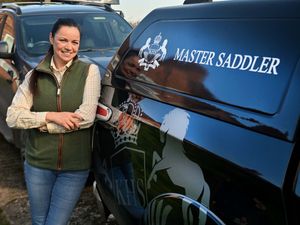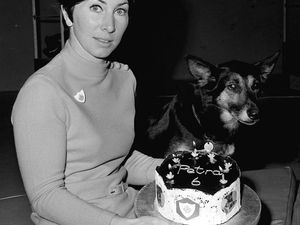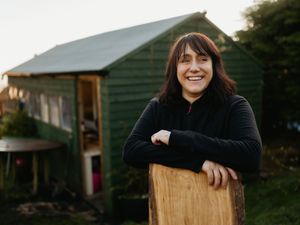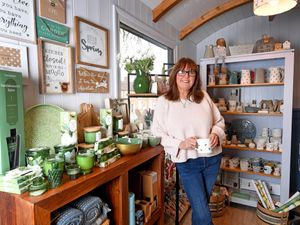Kirsty Bosley: I'm vowing never to suppress my bostin' accent ever again
I've never been one for patriotism. Watching the St George's Cross sailing at full mast doesn't fill my heart to bursting and I don't get a mad desire to sing God Save The Queen when I see the Union Jack.
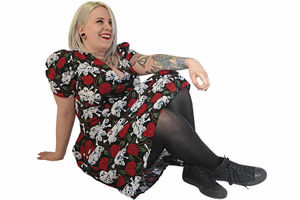
You wouldn't find me queuing up to snatch a glimpse of The Queen if she came to my town or arguing the toss over the power of the pound.
But there's one thing that does make me feel true delight, and it's the black, white and red flag of the Black Country. I can't help myself – I'm a bostin' Black Country bab at heart.
On my desk in our Wolverhampton office, I fly my flag proudly. It's the only standard that I feel really represents who I am. It's an intangible thing.
I was born in West Bromwich and lived there until university, when I went to Stoke to study. There I lived with a girl from Hampshire, and she struggled to understand the ars, ays and we'm's of my mother tongue. Naturally, I talk in a Black Country accent, and at seemingly a thousand words per minute, so there were times when what I say would fall on confused ears. Especially when I called home to my nan and she listened in. "Nope," she'd say. "I understood none of that!"
Over the three years I was away, my accent changed to accommodate the confusion. I started to pronounce words properly and absorb more of the university accent that so many students get. Looking back, it was a dark time. I felt I'd let the side down.
There's always been a bit of a stigma attached to the Black Country accent, I've found. A couple of years after graduating university, I began working in a weird, middle class PR office that I'd never ventured into before. There they used words such as strategy and agenda, and everyone talked really enthusiastically and saccharine – even when they were saying horrible things about people behind their backs or delivering a sharp telling off.
Worse than that, the sing-songy world was one of largely 'posher' accents than mine. It was never a problem, I just used my telephone voice a little bit more regularly so that I didn't sound like the odd one out.
The boss of the company wasn't from the area. Her accent was more what I would consider to be 'proper'. Once, when chattering on with a colleague who was from the Black Country, she commented that she'd 'caught herself' talking in a Yam-Yam twang at home.
She said it as though she'd started to let vile swear words into her vocabulary that she just doesn't stop. "I was mortified!" she exclaimed. "I'd hate to sound like that!"
I laughed, because she was paying my wages, and I was playing the game. But afterwards, I went home and I felt really annoyed by it. You can say what you want about me, I thought, but don't diss the dialect! I didn't want her to talk in our accent anyway – it was ours and she wasn't worthy to speak it.
It was probably the first time I truly felt defensive about a part of me that I'd largely tried to suppress for fear of sounding stupid.
I'd gone to uni and got my degree, slogged my guts out for free on placements, earned money and paid taxes just like anyone else, with any other accent.
Why was I trying to tone it down? Looking back, I'm really disappointed in myself. I love where I'm from, I love the 'saft' humour and quick wit. I love the lingo, the people and the history. I vow to never, ever suppress my accent again.
It seems that regional accents are being more widely accepted than ever now. There's no demand for a radio or telly voice any more, and people such as Nick Grimshaw with his Oldham tones, and John Bishop with his Liverpudlian twang are hosting shows like any other plum-voiced southerner. Especially on the BBC.
This week I met up with Dr Brian Dakin, the man who wrote the official Black Country anthem. He's a fellow Yam-Yam, and a fine example of one too.
He has a PhD. He taught me all about the history of my accent, and its rich history.
He said: "It's always evolved over the centuries. It has never been taken over from its original form. When the Romans came or the Vikings came, it absorbed bits but it's never changed from its original state. Some of the old words are lost, but the essence is still there. It'll just evolve. Kids have their own version of Black Country text or email, and that'll move with the times."
As we approach Black Country Day on Tuesday (the day after my birthday, as though it's fate), I'm embracing my accent more than ever. I might start with a prank phone call to my old boss. Or maybe I'll give have a nice siddowum with a cuppa tay and reflect on how bostin' this region really is.
Yow doe like it? Ar'll gi' ya a cockayva.

